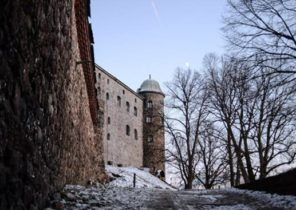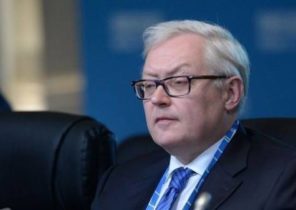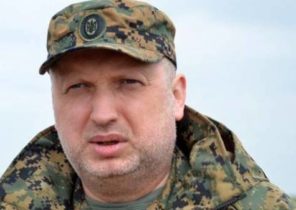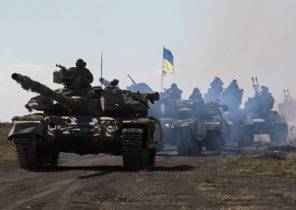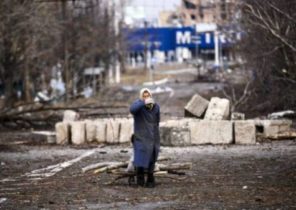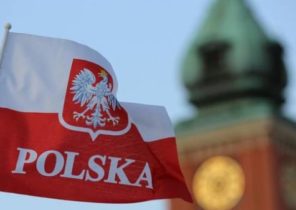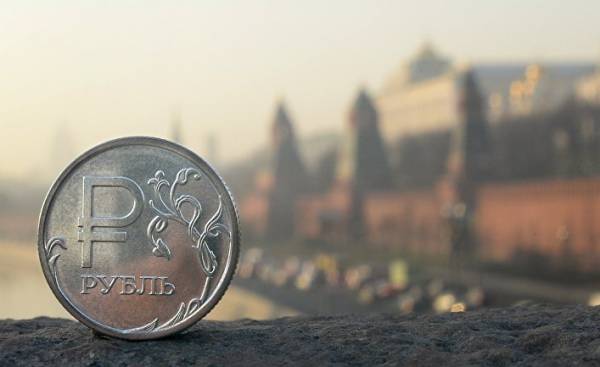
Three years after the annexation of Crimea and the imposition of sanctions against Moscow for attack in Ukraine from Russia received conflicting signals about the state of the economy. Many factors, however, indicate that nearing a serious collapse, followed by further shocks.
The sale of oil Russia provides 26% of foreign exchange earnings. According to estimates of the Moscow Carnegie center, the Federal budget, considering direct and indirect factors, 84% provided by revenues from oil exports.
Three ways to stagnation
The Russian budget this year is designed on the assumption that Urals oil will cost about $ 40 per barrel. In the beginning of the year to pay for it for fifteen dollars more.
Russia’s Central Bank in its latest report on monetary policy indicated that this trend will continue at least until the end of the first half of this year. At the same time it was stressed that if the United States will increase production, while Libya and Nigeria will resume supply to world markets, the volume of supply will increase and prices will decrease. Weak demand growth will not compensate for factors that reduce the price.
Analysts of the Central Bank presented three scenarios of development of economic situation in the country depending on the level of oil prices. The baseline scenario assumes that the quotations of Urals until the end of the first half will be at the level of 50 dollars per barrel, and then to the end of the year will gradually decrease to $ 40. This price will remain in 2018-2019. In such a situation, the average annual inflation in years 2017-2019 will be 4%, while GDP growth is 1-1,5% per year.
The report does not give unexpected projections of exports this year the growth will be 2-2,5%, and in the following years will stop (represented in the document number in 0.5-1% per year are difficult to interpret otherwise). But Russia will retain its status as the largest importer. This year the volume of imports, according to the forecast, will grow by 9%, and will continue to grow 3-3. 5% per year.
In the optimistic scenario, the average annual price of Urals oil in 2017 will reach $ 55 per barrel, and $ 60, and will remain at this level in the following years. As a result of revival in investment and consumer demand in 2017-2018 economic growth exceeds the limits under the baseline scenario.
However, in 2019 the growth will stop. The momentum will not be strong due to the lack of a solid Foundation.
The scenario which the Central Bank called risky, assumes that oil price will drop to $ 25 and remain at this level in the coming years due to the economic slowdown in China. The Russian economic growth will fluctuate around zero, and in the following years it expects the recession.
In these circumstances, the existence of an agreement of the countries-exporters of oil will not play a significant role, and the pulses that contribute to the conservation of this agreement will be very weak. The worsening terms of trade will lead to income decrease and foreign investors and domestic market participants revise their forecasts about the prospects for Russia. This, in turn, as analysts predicted the Central Bank, will contribute to the outflow of capital and make it difficult for Russian companies and financial institutions external debt service.
If you look closely at all three developments, we can say that it really is a scenario of stagnation. Even in the most optimistic version of the economic growth can only be described as “cosmetic”.
Sanctions play a role
According to data released by the Kremlin, in the years 2014-2017 due to sanctions related to the annexation of Crimea and military operation in the Donbass, Russia has lost from 170 to 250 billion dollars. The U.S. state Department in February of this year published a report which analyses as introduced in 2014, Western sanctions have affected Russia’s economy.
Sanctions, the scope of which was limited to people from the nearest environment of Vladimir Putin and their companies, had a negative impact on them fall under the economic entities, banks, energy companies and military-industrial sector, however, did not strike at the Foundation of the Russian economy. The report’s authors, Deputy chief economist of the us Department of state Daniel Ahn (Ahn Daniel) and Professor Rodney Ludema (Rodney Ludema) from Georgetown University — I believe its deplorable state is due primarily from a decline in oil prices on world markets.
In fact, the sanctions only somewhat accelerated the completion of the process, which lasted the last few years. The source of the current instability and future problems lies in the fact that Russia, having as its mainstay exports of oil and gas, “eats” their huge profits and not doing a very reasonable investment.
The scope of the “holes” of the Russian budget and the weakness of the Russian economy is better shows the financial position of the occupied Crimea. At the time of the annexation of the Peninsula in the spring of 2014, the Kremlin promised the residents of the Golden mountain, talking about “sacred” importance of the Crimea and its inhabitants for Russia. From Moscow to the region’s development had to come billions of dollars.
Meanwhile, in late March, the Russian occupation authorities in Crimea have announced reductions in the regional budget by 1.55 billion compared to the already greatly reduced the financial plans for this year. This is the effect of reducing revenues for the Federal target program. As the Minister of Finance annexed Crimea Irina Kiviko, the amount of funds earmarked for the program of development of Crimea and Sevastopol until 2020, the Kremlin decided to cut.
Oil will be gone?
Meanwhile, according to reports coming from the Russian government in the near future Russia may lose one of their main sources of income is the production and export of oil. According to the Minister of natural resources and ecology Sergey Donskoy, the Russians use almost ready for field development, the reserve remains only 6%. In an interview with Rossiyskaya Gazeta, he noted that no new fields production volume will decrease by 2020. “Increase the share of tight oil will significantly worsen the Economics of the projects,” he said.
From existing fields, the Russians have pumped all that you can. In addition, trying to compensate for low prices, Russia has brought the production to a level above the record levels of the late 1980s (now the production comes to 11.2 million barrels per day). While Russians have stopped investing in exploration and preparation of new fields for exploitation.
Exploration is practically suspended. On the one hand, it is the effect of the sanctions, which restrict the ability to buy needed equipment, and the carelessness with which Putin’s team treated the economy. “There is nothing left. Fond of open fields exhausted”, explained at a meeting with Vladimir Putin the head of the Federal Agency for subsoil use (better known under the name of the Agency) Yevgeny Kiselyov.
According to the Agency, to maintain the level of production at the current level, Russia can only in the next few years. 70% of Russian reserves of oil are concentrated in the Arctic and other remote areas where its cost varies from 70 to 150 dollars per barrel. In addition, Russian companies lack the technology to develop Arctic fields. In the end, it turns out that this oil, in fact, no.
The peak of production, as the analyst of consulting company RusEnergy Mikhail Krutikhin, will be in 2020-2022 year, and in 2035 its volume will be only 50% of today’s figures. This amount of raw materials required to meet their own needs, so if until that time nothing will change, she will finally leave the club of exporters and will lose one of the main sources of income.
“If we can avoid catastrophic scenarios related to errors of management or external factors, Russia has economic margin for a period of from six to ten years or more. Then the question will be about the urgent need for drastic changes to preserve the integrity and governability of the country”, — experts of the Moscow centre Carnegie report on the state of the Russian economy, published at the end of 2016.
Reforms shelved
That the country needs fundamental reform, say in Russia for a long time, but still nothing specific that’s not turned. Russian rating Agency (ACRA) has compiled a list waiting implementation projects, assessing their impact on the economic situation.
Tax reform would reduce the level of shadow employment, increase the competitiveness of exporters, to reduce the burden on the regions. Among the possible side effects of an ACRE calls it a short-term rise in inflation and associated interest rates, and also increase the tax burden on high earners, and the increasing dependence of the Pension Fund of the budget.
Following from the reforms waiting in the wings is the liberalization of the energy market, aimed at addressing the under-funding of infrastructure and increase of investment attractiveness of the sector. The negative effect may be a significant price increase for consumers, who are accustomed to stable, competitive rates, and ultimately higher inflation expectations.
The introduction of “individual pension capital” will allow to reduce the amount of funds received from the state budget to the Pension Fund, and will contribute to the development of a funded system. A negative consequence of the reform may be a decline in the net income of the Russians, who will have to pay additional contributions in the first place socially vulnerable population groups.
Reforms officially delayed until 2019, however, the AKP suggests that to them really will begin no earlier than 2020. “Despite the expected in the long term objectively positive effects, the reforms at the beginning of can be associated with rising regulatory burden, potentially lowering their success”, — States analysts.
Strong shocks — closer
The Ghost of the disaster all the more clearly hovering in front of the Kremlin team, and ways of addressing those problems, which led Russia Vladimir Putin, not seen.
Eagerly awaiting another opportunity to do business with Moscow, Western countries are not able to help her, since the accident, on the verge of which the country, expire from systemic problems.
Economic difficulties increasingly affect the situation in society. In the fight, as they say in Russia, the TV (i.e. the ideological brainwashing of citizens) with the refrigerator, that is, the level of material well-being, the latter begins to prevail, especially as the euphoria associated with the attack on Ukraine and annexation of Crimea, which fueled the Kremlin’s propaganda, is gradually eroding.
“The government has been asleep began a dramatic shift in public consciousness. Propaganda has ceased to be an offsetting factor. There are a lot of surprises. Began the transformation of mass consciousness is irreversible and will accelerate,” — assesses the prospects of the situation in the country, Professor of MGIMO Valery Solovey.
While the eyes of the West was confined to anti-corruption rallies, which were organized in Moscow and other cities Alexei Navalny, via Russia, a wave of protests by truckers against rising road toll as part of the introduction in 2015 of system “Platon”.
Many commentators in the East believe and Alexei Navalny, Mikhail Khodorkovsky entered into an agreement with the Kremlin oppositionists, who helped to organize reigning in the people mood. This assumption, however, is confirmed by the facts. The protests were against corruption and Prime Minister Dmitry Medvedev, with the name of the main player of the Kremlin, Putin, almost no sound. Meanwhile, in the survey, which in early March, spent “Levada-center”, 67% of Russians said that the responsibility for financial abuse in government summit and rampant corruption are the responsibility of the President.
Spontaneous movement of entrepreneurs who are protesting against the system, not subject to authorities, it shows how Russians really believe the economic situation in the country. Not surprisingly, the protesters, the organizers of which were the “official” opposition, met with rather mild by the standards of the Kremlin’s reaction: they spent some hours in police stations. Meanwhile, against another group of malcontents, as it was at the end of March in Dagestan, the government put columns of tanks and armored personnel carriers.
Their government considers a real threat, and their protests are addressed to the essence of the problem. It is their performances, not images from Moscow of more eloquent evidence of the fact, what is the status of the Russian economy. Therefore, you should be prepared for the gloomy scenarios and to remember that the last time the Russians trust their government has been shaken, and the refrigerator started confidently to win the battle with TV, Putin launched a war against Ukraine.
